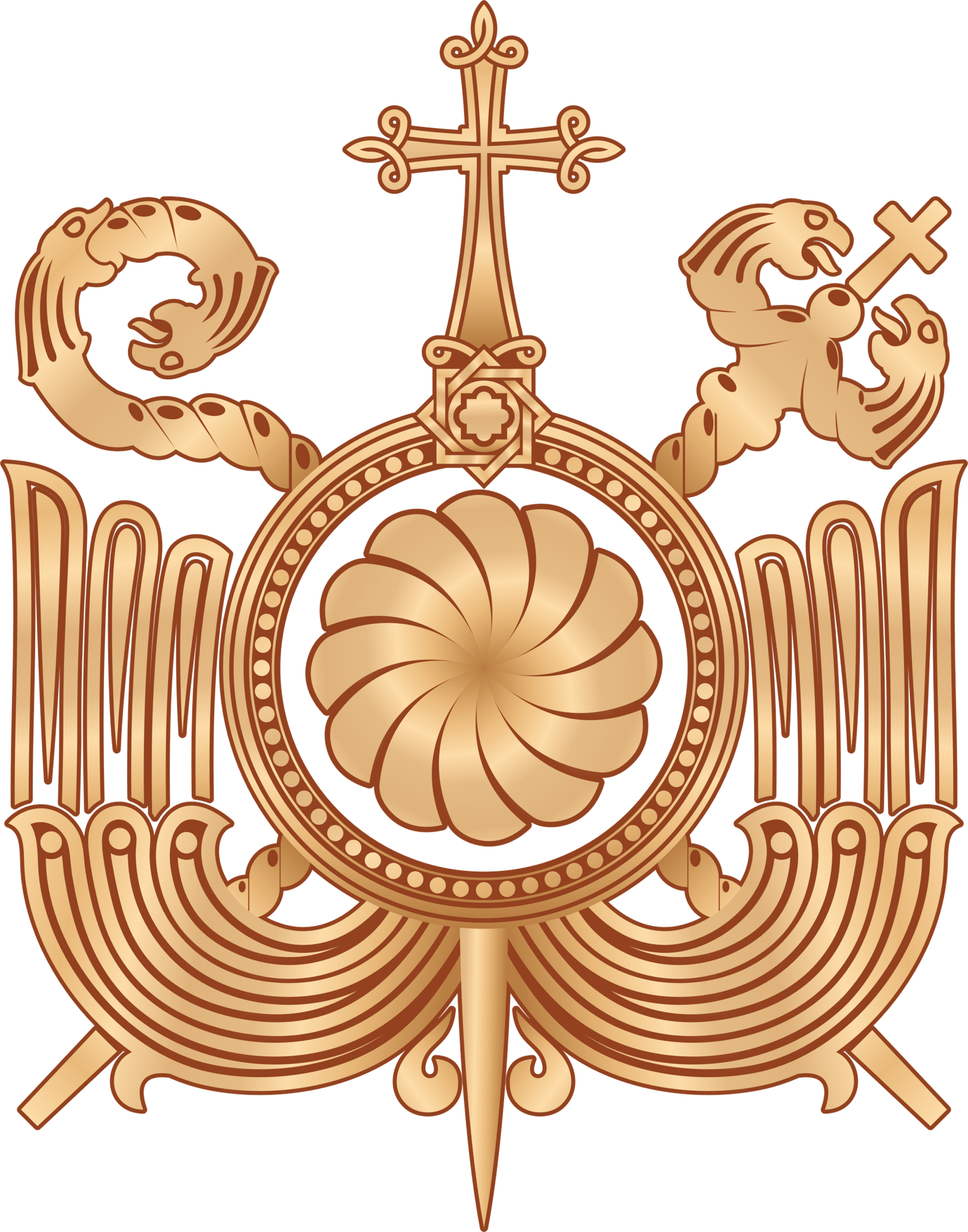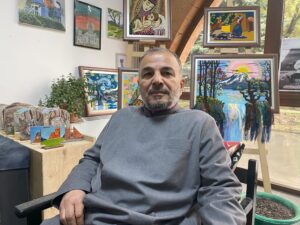The Interview of the Leader of the Diocese of Artsakh with "Hetq"
Artsakh exists, and we must rise, unite, and establish a strong mission to reclaim our homeland swiftly. - Archbishop Vrtanes
The interview of the Most Reverend Archbishop Vrtanes Abrahamyan, leader of the Diocese of Artsakh, with "hetq.am"
- Your Grace, you came to Yerevan for surgery. How are you feeling now?
I am well now. The issue that threatened my health is resolved.
- Unfortunately, during difficult times, the faithful in Artsakh found themselves without their shepherd.
I don’t see it that way. I maintained full communication with my diocese. I quickly formed a committee that carried out my remote instructions. They also made decisions locally and reported to me. By May, my health had stabilized, and I was trying to return. I was promised that I would return by the same route I left, but it didn’t work out. I appealed to the Russian peacekeepers, diplomatic channels, the leadership of Artsakh, the Red Cross, and the Mother See of Holy Etchmiadzin, which did everything possible, but to no avail. It was clear which side made it impossible.
- During the blockade, Artsakh residents endured a humanitarian crisis, and it seemed they would persevere again. However, September 19 and subsequent developments occurred. Did you foresee this outcome when you left Artsakh?
We hoped for a miracle—that the doors to our homeland would open, and Artsakh would thrive. Sadly, either our prayers were weak, or we were unworthy of such a miraculous homeland. It wasn’t Artsakh that fell; we did. Artsakh still exists, and we must stand up, unite, and create a solid mission to reclaim our homeland quickly. First, we must admit our mistakes, acknowledge our failures, and realize that we lacked the sense of mission in our hearts.
- The final stage of Artsakh's loss was the decree dissolving the republic. What, in your view, marked the beginning of Artsakh's decline?
Artsakh was liberated not because its liberators were more intelligent or better fighters but because their struggle was filled with genuine love. God saw the hearts of the people and granted victory. But people didn’t appreciate it—they became proud and arrogant. Those who liberated Artsakh built stronger walls not around our homeland but around their mansions. This was the downfall. We failed to understand the eternal treasure we were entrusted with. As the Holy Bible says, "Where your treasure is, there your heart will be also." Initially, our hearts were with our treasure, but later they shifted toward selfish, material wealth. Meanwhile, for 30 years, the enemy was developing a plan for victory. We failed to grasp that such success in a nation’s history is rare and transient. The seeds of Artsakh's loss were sown in our victory.
- Did we experience a decline in values over the years?
Certainly. If you attribute all the gifts given to you solely to yourself, you risk losing everything. Gratitude and acknowledgment of the source of blessings are essential.
- Were the mistakes deliberate or misguided?
Responsibility also lies with the clergy for not guiding their flock firmly enough, and with the intellectuals, who became complicit and benefited from the lavish tables instead of taking a stand. This persists to this day.
- You appealed to the Russian peacekeepers to safeguard Artsakh’s spiritual sites from potential Azerbaijani attacks. Have you received a response?
The Russian side forwarded my request and the list of our churches and monasteries to Azerbaijan’s Ministry of Internal Affairs. They assured us they would ensure the safety of these sites to prevent looting or desecration.
- Can such assurances be trusted, considering that Ghazanchetsots Cathedral was turned into a mosque, and many spiritual sites were desecrated after the 44-day war?
Certainly not. But we have no leverage. All I could do was make the request. The rest will be documented for history.
- What were the clergy able to take with them from the monasteries?
They managed to take only the sacred items from the altar. Everything else was impossible to carry, as they came with their families in small vehicles.
- Did you bring any sacred items with you when you came to Yerevan?
No, I came for a short-term medical procedure and didn’t foresee anything like this. I was planning with the faith of a dreamer. I was creating a network of Sunday schools, opening youth centers, purchasing land for diocesan farming, renovating churches, and even launching a diocesan radio station. No one in Artsakh was thinking about such an end; people were building homes to the very last day.
- How many clergy have arrived in Armenia, and what ranks do they hold? Could they continue their mission in different dioceses?
Fifteen clergy members have arrived, including two Father Superiors—the abbots of Gandzasar and Dadivank—and priests. They will certainly continue their mission in other dioceses; the process is being organized.
- For the first time in the history of the Third Republic of Armenia, there is a pronounced conflict between the Church and the government. The Church criticizes the authorities, while the government accuses the Church of meddling in politics. In your opinion, which side should take the first step to mend the rift?
If the nation is crumbling, how can the Church remain silent? How it is interpreted is another matter. Politics and the Church's stance are different. The Church, with its millennia of history, is sensitive to danger. When the Church senses danger, it is akin to the heart sensing it. The Church sounds the alarm not out of allegiance to any power or faction but out of love for the nation. Unfortunately, the Church was right; we lost Artsakh. And now the Church is warning again: the homeland is in danger.
- The appointment of Samvel Shahramanyan was not unanimously accepted, and even today many figures say that the appointment of the new president was the reason for Azerbaijan’s attack. How did you personally feel about his appointment?
I do not share this view. Azerbaijan had a clear plan and they executed it. Whether Samvel Shahramanyan was appointed or someone else— it wouldn't have mattered. The same thing would have happened, even if there were no change in the government.
-Did you speak with him after his appointment?
I have already spoken with him in Yerevan, and I understood what news he had from our former presidents. Because regardless of everything, they are our symbols. I was encouraged when I learned that the presidents had said, "We will not leave until the last Armenian leaves." This means they were standing firm on their ground.
-We can constantly point out circumstances and blame those responsible for the loss of Artsakh. But in the end, who are the main individuals responsible, those who should stand before a court, because we are talking about the dissolution of an entire republic?
There are no specific names, we are all guilty. Each person is responsible before their conscience and must answer before God’s judgment. This is harsher and more powerful than any court. If someone is not fulfilling their mission, then they are in the service of Satan. If I stray from my duty as a clergyman, then I am in Satan's service. If I am president and stray, then I am in the role of Satan.
- Would you consider returning to Artsakh under certain guarantees, even under Azerbaijani control?
Absolutely not. Such guarantees don’t exist. Let those coming with white flags—be they Europeans or Russians—understand this. We cannot return to live under their control on our land.
- How do you envision the future of the Diocese of Artsakh? Could it continue to function despite its spiritual centers now being under enemy control?
I hope and believe it will endure, as long as the Catholicos deems it appropriate.
- What is irreplaceable that we left behind in Artsakh?
The greatest sanctity is the homeland itself. We can rebuild material things, but we cannot find a spiritual homeland elsewhere. We must never lose Artsakh in our hearts, and Artsakh residents must preserve their identity wherever they are.
- What is irreplaceable that we left behind in Artsakh?
The greatest sanctity is the homeland itself. We can rebuild material things, but we cannot find a spiritual homeland elsewhere. We must never lose Artsakh in our hearts, and Artsakh residents must preserve their identity wherever they are.
- Will you return to Artsakh?
Despair is destructive. Love for Artsakh must never cease. The more love we have, the sooner we will return. A nation must have a plan for the future. We must find the courage to abandon pride, embrace humility, and move forward. We will return to Artsakh with love. It will always remain—it is what my heart feels.




